This is a follow-up question to this.
Using Pandas Style, I manage to format all of the values in a dataframe into values that have commas as thousands separators. However, when there are empty strings in a dataframe, the formatting fails.
Basically, my goal is convert from this:  to this:
to this: 
Can anyone help me with this?
This is the code I have so far:
import pandas as pd
from IPython.display import HTML
styles = [
hover(),
dict(selector = "th",
props = [("font-size", "110%"),
("text-align", "left"),
("background-color", "#cacaca")
]
)
]
column_01 = ["", 2000000000, "", 21000000, 3000]
df = pd.DataFrame(column_01)
int_frmt = lambda x: "{:,}".format(x) # Integer
float_frmt = lambda x: "{:,.0f}".format(x) if x > 1e3 else "{:,.2f}".format(x) # Float
str_frmt = lambda x: "{:}".format(x) # <----- Added for empty strings but fails
frmt_map = {np.dtype("int64"): int_frmt,
np.dtype("float64"): float_frmt,
np.dtype("S"): str_frmt # <----- Added for empty strings but fails
}
frmt = {col: frmt_map[df.dtypes[col]] for col in df.columns if df.dtypes[col] in frmt_map.keys()}
html = (df.style.set_table_styles(styles).format(frmt))
html